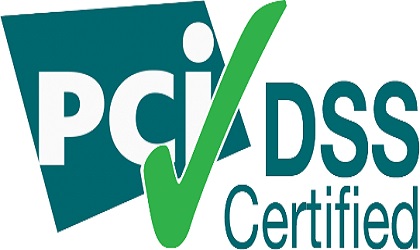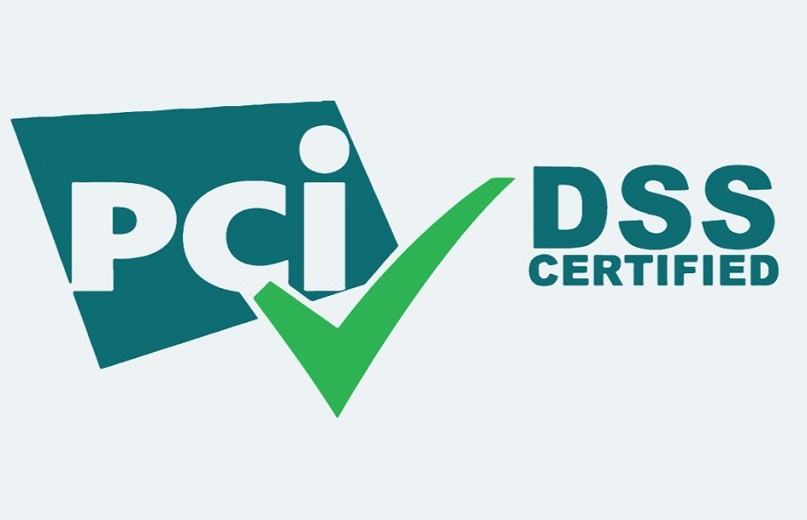In an era of increasing digital transactions and online payments, data security has become a critical concern for businesses and consumers alike. The Payment Card Industry Data Security Standard (PCI DSS) is an international standard designed to protect cardholder data and ensure the security of payment systems. As Bangladesh’s digital economy continues to grow, PCI DSS certification in Bangladesh has become increasingly important for businesses operating in the country.
This article will explore the significance of PCI DSS certification in Bangladesh, the steps businesses can take to achieve it, and the benefits of becoming compliant with this global security standard.

What is PCI DSS Certification in Bangladesh?
PCI DSS certification in Bangladesh is a set of security standards established by major credit card companies (Visa, MasterCard, American Express, Discover, and JCB) to safeguard cardholder data. It applies to any business that stores, processes, or transmits cardholder information. This certification verifies that businesses are compliant with these standards and have implemented proper security measures to protect against cyber threats, fraud, and data breaches.
In Bangladesh, where e-commerce and digital transactions are growing rapidly, PCI DSS certification is essential for ensuring the secure handling of payment card data. As online shopping becomes more prevalent, consumers need to trust that their payment information is secure. Therefore, obtaining PCI DSS certification in Bangladesh is vital for businesses aiming to enhance their credibility and build customer loyalty.
Why is PCI DSS Certification Important in Bangladesh?
As Bangladesh’s economy becomes increasingly digitized, the need for robust data protection is greater than ever. Hereâs why PCI DSS certification in Bangladesh is particularly important:
Protecting Consumer Data
With the rise of online shopping and digital payments, businesses must protect the sensitive data of consumers. PCI DSS certification in Bangladesh ensures that businesses implement strict security measures to protect cardholder data from theft and fraud. This not only safeguards the consumer’s financial information but also helps in establishing a secure online shopping environment. When consumers feel that their information is protected, they are more likely to engage with online platforms.
Building Trust with Customers
Consumers want to feel confident that their payment information is secure when making transactions. By achieving PCI DSS certification in Bangladesh, businesses can demonstrate their commitment to security, which helps build trust with customers. A trusted payment environment can lead to increased customer loyalty and repeat business. Companies that can assure their clients of stringent security measures often gain a competitive edge in a crowded market.
Preventing Financial Losses
A data breach or cyberattack can lead to significant financial losses due to fines, legal penalties, and reputational damage. PCI DSS certification in Bangladesh helps reduce the risk of such incidents by enforcing strong security controls. Organizations that comply with these standards are less likely to experience breaches, ultimately protecting their bottom line. Furthermore, the costs associated with recovering from a breach can be astronomical, not to mention the potential loss of customer trust.
Compliance with Global Standards
As businesses in Bangladesh increasingly engage in cross-border trade, it is crucial to comply with global security standards like PCI DSS. This ensures that local companies can continue to process international transactions securely and without restrictions. Being PCI DSS certified allows Bangladeshi businesses to participate in the global market confidently. It also opens doors for partnerships with international companies, enhancing their market reach.
Meeting Regulatory Requirements
As Bangladesh strengthens its digital infrastructure, the government is likely to introduce more stringent regulations on data protection and cybersecurity. PCI DSS certification in Bangladesh helps businesses stay ahead of these requirements. It also prepares them for future compliance with local and international data protection laws. Staying proactive regarding compliance can save businesses from potential legal complications down the road.
Steps to Achieve PCI DSS Certification in Bangladesh
Achieving PCI DSS certification in Bangladesh requires businesses to follow a comprehensive process to ensure compliance with the security standards. Here are the key steps to becoming PCI DSS certified in Bangladesh:
Determine the Level of Compliance
PCI DSS has different levels of compliance depending on the volume of transactions a business processes. For example, large businesses that process millions of transactions annually will face more stringent requirements than smaller businesses. Understanding where your business fits in this framework is crucial for determining the appropriate steps to take. This knowledge will help businesses tailor their compliance strategies effectively.
Conduct a Self-Assessment or Hire a QSA
For smaller businesses, a Self-Assessment Questionnaire (SAQ) can be used to assess compliance. However, larger businesses or those with complex payment systems should hire a Qualified Security Assessor (QSA) to conduct a full audit. QSAs provide valuable insights into your current security posture and guide you through the compliance process. They can identify vulnerabilities that may not be immediately apparent and recommend effective solutions.
Identify Security Gaps
Conduct a gap analysis to identify any areas where your business falls short of PCI DSS certification in Bangladesh. This will help determine what security improvements need to be made. Identifying vulnerabilities in systems, processes, or personnel is a critical step in enhancing your security measures. By addressing these gaps, businesses can strengthen their overall security posture and better protect cardholder data.
Implement Required Security Controls
Based on the gap analysis, businesses must implement the necessary security controls to protect cardholder data. This may include adopting encryption methods, improving access controls, and establishing firewalls. Ensuring that these security controls are properly integrated into your systems is essential for achieving compliance. Organizations should also consider investing in advanced security technologies, such as intrusion detection systems and endpoint protection.
Complete the Attestation of Compliance (AOC)
Once the required security measures have been implemented, businesses must complete the Attestation of Compliance (AOC), confirming that they have met all PCI DSS requirements. This document serves as proof of compliance and must be submitted to the relevant payment card networks. Maintaining accurate documentation of all compliance efforts is crucial, as it can be required for audits or reviews.
Maintain Compliance
PCI DSS certification in Bangladesh is not a one-time process. Businesses must continuously monitor their security systems and conduct regular audits to maintain compliance. Staying informed about changes to PCI DSS requirements and best practices is essential for ongoing compliance. Organizations should develop a culture of security that encourages vigilance and proactive measures among all employees.
Benefits of PCI DSS Certification for Businesses in Bangladesh
PCI DSS certification in Bangladesh offers a range of benefits for businesses:
Enhanced Security
PCI DSS certification in Bangladesh helps businesses implement industry-leading security measures, which protect against data breaches, fraud, and cyberattacks. By adhering to these standards, organizations can create a more secure environment for their customers. Enhanced security not only protects cardholder data but also contributes to a more stable and reliable business environment.
Increased Customer Confidence
Achieving PCI DSS certification in Bangladesh signals to customers that their payment information is handled securely, fostering trust and encouraging repeat business. Customers are more likely to engage with businesses that prioritize their data security. A strong reputation for security can lead to increased sales and customer retention, both crucial for long-term success.
Compliance with Global Standards
PCI DSS certification in Bangladesh allows businesses to engage in international trade and process global transactions securely. This compliance opens up new markets and opportunities for growth. It demonstrates that the business adheres to international security standards, making it more attractive to potential partners.
Avoiding Fines and Penalties
Non-compliance with PCI DSS can result in significant financial penalties from payment card companies. PCI DSS certification in Bangladesh helps businesses avoid these penalties and the associated costs of rectifying security breaches. Additionally, the potential legal repercussions of a data breach can be financially devastating, making compliance a critical component of risk management.
Reputation Management
A data breach can have a devastating impact on a companyâs reputation. PCI DSS certification in Bangladesh helps prevent such incidents, protecting a businessâs reputation. A strong reputation for security can be a significant competitive advantage in todayâs digital marketplace. Consumers are more likely to choose businesses known for their commitment to protecting sensitive information.
Business Growth Opportunities
Achieving PCI DSS certification in Bangladesh can open doors to new partnerships and business opportunities. Organizations that can demonstrate compliance with industry standards are often more attractive to potential partners and clients. This can lead to increased collaboration, innovation, and ultimately, growth in the business.
Improved Operational Efficiency
Implementing PCI DSS compliance measures can lead to improved operational efficiency. By establishing clear security protocols and regularly reviewing security practices, businesses can streamline their operations. This efficiency can result in cost savings and better resource management, allowing businesses to focus on growth and innovation.
Conclusion
In conclusion, PCI DSS certification in Bangladesh is an essential step for any business involved in electronic payment processing. It demonstrates a commitment to security and customer trust, ensuring that the organization can compete effectively in both local and global markets. By prioritizing PCI DSS certification in Bangladesh, businesses can take proactive steps to protect their customers and their bottom line in an increasingly interconnected world.
Moreover, as consumer expectations continue to rise regarding data security, companies that achieve PCI DSS certification in Bangladesh position themselves as industry leaders committed to safeguarding their clientsâ sensitive information. This commitment can translate into tangible business benefits, such as increased customer loyalty, enhanced brand reputation, and a stronger competitive advantage in the marketplace. Ultimately, businesses that take data security seriously will not only protect themselves from potential threats but will also contribute to a more resilient and trustworthy digital ecosystem in Bangladesh.
By embracing PCI DSS certification in Bangladesh, businesses can ensure that they are well-equipped to navigate the complexities of the digital economy, build enduring relationships with their customers, and seize new growth opportunities in the ever-evolving landscape of e-commerce. The certification not only serves as a badge of honor but also as a crucial investment in the future success and sustainability of the organization.



